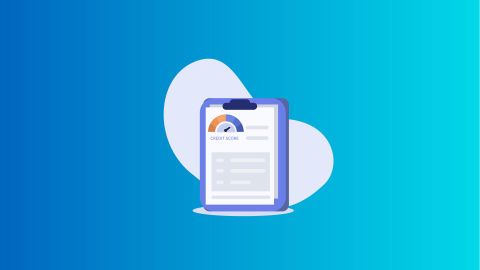Changes in PAN card transactions
The Government of India introduced significant changes to PAN card transactions to enhance financial transparency and reduce the flow of black money. These changes, effective from January 1, 2016, apply to various financial transactions exceeding Rs. 2 lakh. Check your business loan eligibility to understand how complying with PAN regulations can impact your financing options.
Objectives of PAN card transaction changes
The primary objectives behind these changes include:
Curbing black money flow
Illegal transactions and corruption contribute to the accumulation of black money, adversely affecting the economy. By requiring individuals to submit PAN details for transactions above Rs. 50,000, the government aims to curb these illicit activities and reduce the circulation of black money.
Widening the taxpayer base
Currently, only 14% of India's population holds a PAN card, and just 3.6 Crore people (2.8%) out of 117 Crore file income tax returns. By mandating PAN details for significant transactions, the government can broaden the taxpayer base and monitor high-value transactions more effectively.
The PAN Card serves as a universal identification key to track financial transactions with a taxable component, thereby preventing tax evasion. According to government regulations, PAN details must be furnished for transactions above Rs. 2 lakh, regardless of the payment method. Individuals who do not possess a PAN card and engage in transactions exceeding Rs. 2 lakh must fill out a form and provide the necessary identity proof. Check your pre-approved business loan offer to explore how transparent financial records can facilitate quicker loan approvals.
Financial transactions that require PAN
As per the updates effective from 1st January, 2016, the following financial transactions require the provision of PAN details:
1. Fixed deposits
If you have a fixed deposit with any bank exceeding Rs. 50,000 or aggregating to Rs. 5 lakh in a financial year, you must provide your PAN. This applies to deposits made in banks, NBFCs, cooperative banks, and post offices.
2. Immovable property transactions
Any sale or purchase of immovable property worth more than Rs. 10 lakh requires a PAN. The previous threshold was Rs. 5 lakh.
3. Motor vehicle transactions
PAN is mandatory for purchasing a four-wheeler. If you are selling your four-wheeler, you also need to furnish your PAN. However, PAN is not required for the sale or purchase of two-wheelers.
4. Opening a bank account
To open an account with any private, nationalised, or cooperative bank, you must provide your PAN as identification proof. However, PAN is not necessary for opening an account under the Pradhan Mantri Jan Dhan Yojana.
5. Transactions through cash cards
If you are making a transaction worth more than Rs. 50,000 through any prepaid payment instrument such as social benefit cards, gift cards, or remittance cards, you must furnish PAN details.
6. Life insurance premium payments
If the total payment towards your life insurance policy in a year exceeds Rs. 50,000, you must provide your PAN details.
7. Payment of hotel bills
PAN is mandatory for any hotel or restaurant bill payment exceeding Rs. 50,000 when paid in cash.
8. Foreign travel expenses
When making any cash payment for foreign travel expenses exceeding Rs. 50,000, you must provide your PAN details. This requirement also applies to the purchase of foreign currencies worth Rs. 50,000 or more.
9. Buying jewellery or bullion
PAN is compulsory for purchasing gold bullion or jewellery worth Rs. 2 lakh or more, regardless of whether the payment is made in cash or by card.
10. Making cash deposits
For cash deposits exceeding Rs. 50,000 in a single day, you must mention your PAN details.
11. Purchasing shares
If you purchase or sell shares of a company not listed on any stock exchange and the transaction is worth Rs. 1 lakh or more, you must provide a PAN. PAN is also essential for opening a Demat account.
12. Purchasing mutual funds or bonds
For payments exceeding Rs. 50,000 to buy units of mutual funds, you need to provide PAN details. Similarly, PAN details are required when purchasing bonds or debentures worth more than Rs. 50,000.
These changes aim to promote financial transparency and accountability. By adhering to these requirements, individuals and businesses can help the government in its efforts to curb illegal activities and enhance the economic framework of the country.




